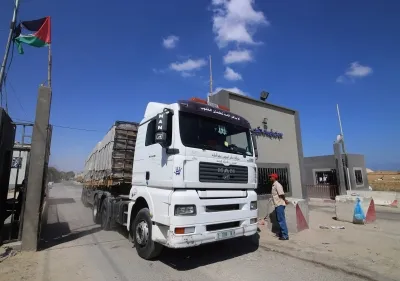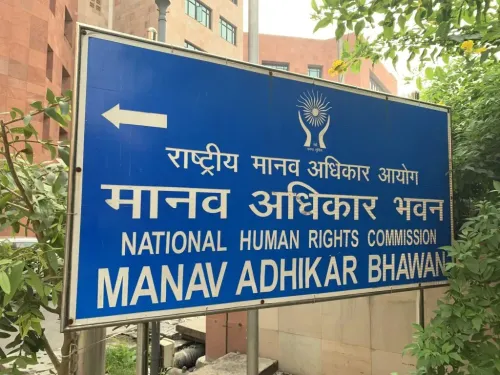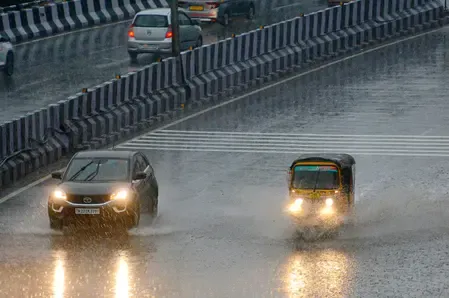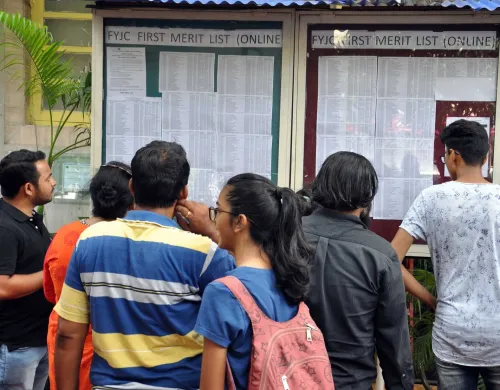Why is Aid Distribution in Gaza Being Hindered?

Synopsis
Key Takeaways
- Ongoing humanitarian crisis in Gaza necessitates urgent action.
- UN aid distribution faces significant obstacles due to military operations.
- Community-based distribution points are crucial for effective aid delivery.
- Calls for better access and coordination are essential.
- Unimpeded access is vital to save lives.
United Nations, Aug 1 (NationPress) UN humanitarian officials have reported that as the situation of starvation escalates in Gaza, the distribution of aid is increasingly hindered by delays, looting, and military operations, despite ongoing shipments being received at Israeli checkpoints.
The UN Office for the Coordination of Humanitarian Affairs (OCHA) noted that earlier this week, although the Israeli military has identified secure routes from border crossings into Gaza to designated distribution sites, UN-operated aid trucks and their partners continue to experience significant delays, putting drivers, humanitarian workers, and crowds in jeopardy, as reported by the Xinhua news agency.
According to OCHA, the only route provided by Israeli authorities for UN teams leaving the Kerem Shalom/Karem Abu Salem crossing into Gaza is often interrupted by Israeli ground forces establishing ad hoc checkpoints, further complicating the delivery of aid.
Despite these obstacles, the global body and its humanitarian partners are committed to seizing every opportunity to gather supplies from the Israeli-controlled crossings. “The teams have successfully gathered wheat flour, ready-to-eat rations, high-energy biscuits, nutritional items, hygiene kits, and other vital supplies from the crossings,” OCHA stated.
It was mentioned that “much of the food is taken by people en route, rather than reaching community-based distribution points,” emphasizing that “aid must be distributed at the community level” to ensure no one is overlooked.
The United Nations and its partners advocate for reaching Palestinians in need through community-based distribution points, which number 400 across Gaza, instead of the four militarized Israeli and US-sponsored Gaza Humanitarian Foundation (GHF) hubs, due to the chaos and gunfire frequently occurring nearby.
OCHA urges the Israeli authorities to facilitate the consistent and simultaneous entry of large quantities of varied humanitarian and commercial supplies through all crossing points and multiple routes.
Addressing the challenges aid workers face in coordinating movements across much of the Gaza Strip with Israeli authorities, OCHA stated that only 47 percent of efforts were fully facilitated, while 11 percent were withdrawn by organizers, according to data collected from July 23 to 29.
“Unimpeded humanitarian access within Gaza is crucial,” the office remarked. “Without it, time and resources are wasted, lives are lost, and the response cannot match the scale of the needs.”










